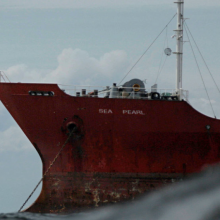Source: New York Times
Author: Ian Urbina
Few places on the planet are as lawless as the high seas, where egregious crimes are routinely committed with impunity. Though the global economy is ever more dependent on a fleet of more than four million fishing and small cargo vessels and 100,000 large merchant ships that haul about 90 percent of the world’s goods, today’s maritime laws have hardly more teeth than they did centuries ago when history’s great empires first explored the oceans’ farthest reaches.
Ships intentionally dump more engine oil and sludge into the oceans in the span of three years than that spilled in the Deepwater Horizon and Exxon Valdez accidents combined, ocean researchers say, and emit huge amounts of certain air pollutants, far more than all the world’s cars. Commercial fishing, much of it illegal, has so efficiently plundered marine stocks that the world’s population of predatory fish has declined by two thirds.
Vessels that disappear over the horizon tend to vanish not just from sight but from oversight, a New York Times investigation found. Countries have signed dozens of maritime pacts, the shipping industry has published reams of guidelines and the United Nations maritime agency has written hundreds of rules, all aimed at regulating ships, crews and safety. But those laws are also often weak, contradictory and easily skirted by criminals. National and international agencies usually have neither the inclination nor resources to enforce them.
For more, go to: http://www.nytimes.com/2015/07/19/world/stowaway-crime-scofflaw-ship.html?_r=0

